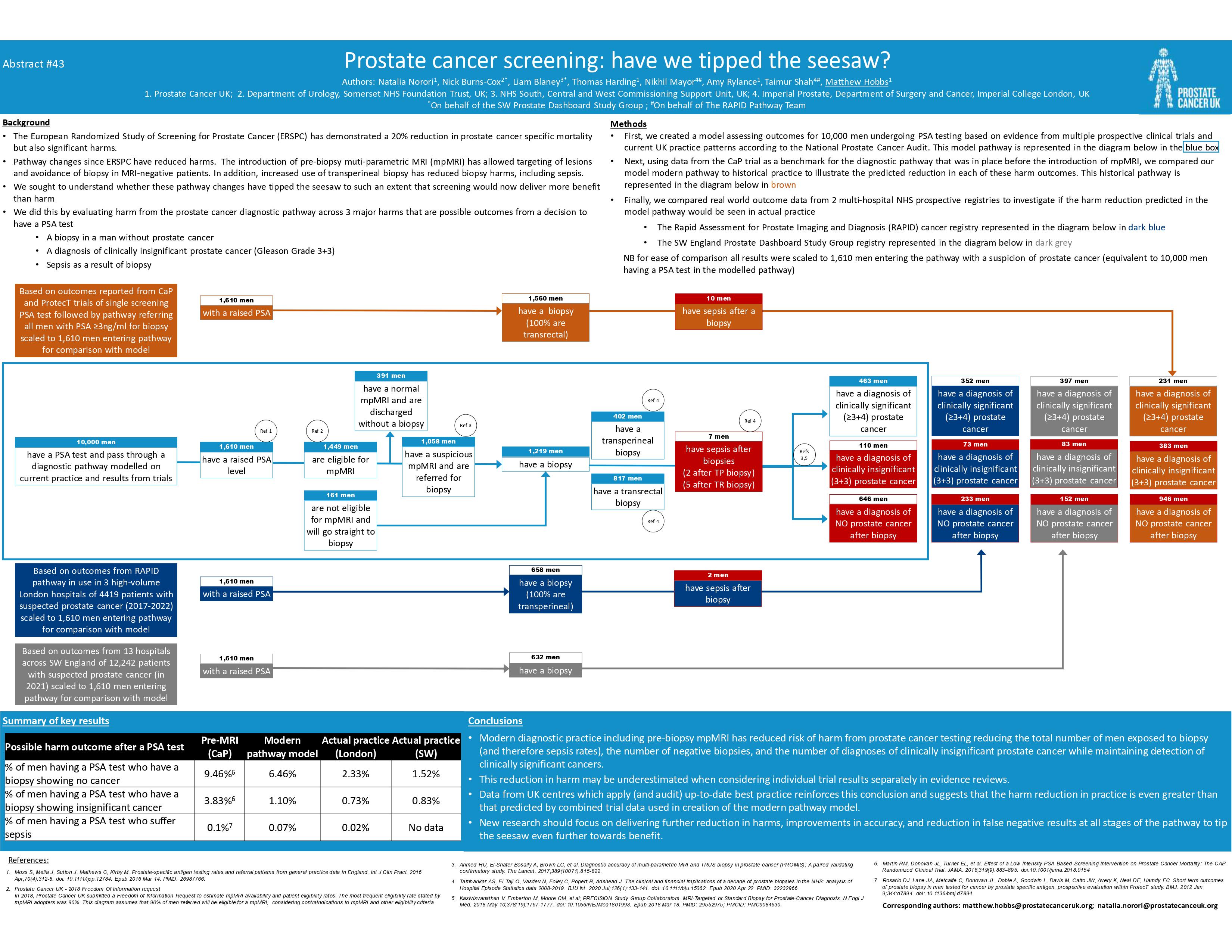Tens of thousands fewer men face harm in prostate cancer diagnosis
Prostate Cancer UK study shows tens of thousands fewer men each year face unnecessary harm thanks to new techniques.
New study shows UK may finally be ready for prostate cancer screening
New research by Prostate Cancer UK shows that the UK may finally be in a position to roll out a screening programme for prostate cancer.
Screening has been shown to reduce deaths from prostate cancer by 20%, but was thought to harm too many men to be rolled out nationally. The study shows that the introduction of new scans and safer biopsies now means tens of thousands fewer men each year are experiencing harms such as unnecessary biopsy or sepsis during diagnosis.
The news comes after the UK’s National Screening Committee last week confirmed that it will explore taking forward new proposals on prostate cancer screening– both population-wide and as a targeted intervention for Black men or men with a family history of the disease, who are at highest risk.
Research
Prostate Cancer UK presented its analysis of several clinical trials and current practice alongside real-world data from 16 NHS trusts in London and the South-West at the ASCO GU conference in San Francisco. It compared this to a screening trial from before these newer scans and biopsies were introduced that informed the committee’s past decisions to rule out screening for prostate cancer. It found that:
On average, 67% fewer men experienced harm during the diagnostic process – amounting to 902 fewer men for every 10,000 PSA tests carried out and tens of thousands of men each year. This is thanks to:
- A nearly 64% decrease in the number of unnecessary biopsies (an average of 602 fewer men for every 10,000 men who have a PSA test).
- A 55% reduction in the number of men who develop sepsis.
- A nearly 77% reduction in the number of men receiving a diagnosis of ‘clinically insignificant cancer’ – meaning that it is very unlikely to ever spread and cause them harm.
Looking at real world outcomes based on actual NHS practice, the process of diagnosis using these new techniques was even better than would be expected, even when forecasting harm reduction based on clinical trials.
Two new techniques have been key to this reduction in harm – multiparametric MRI scans (known as mpMRI) and transperineal guided biopsies.
Prostate Cancer UK helped to fund research that showed having mpMRI scans beforehand could safely rule out 27% of biopsies as unnecessary, as well as improving their accuracy, making them more likely to detect the cancer the first time.3 The charity worked closely with the NHS to make sure the innovative technique was rolled out across the country, which has been the biggest factor in reducing these unnecessary harms.
The increased use of transperineal biopsies in recent years, which carry lower risk of sepsis, has also helped to lower this risk further.
Prostate cancer screening: Have we tipped the seesaw?
(Poster from ASCO GU conference, San Francisco)

Prostate cancer screening: Have we tipped the seesaw?
(Presentation from ASCO GU conference, San Francisco)
Dr Matthew Hobbs, lead researcher on the analysis and Director of Research at Prostate Cancer UK, said: “We’ve known for some time now that testing more men reduces prostate cancer deaths, but there have always been concerns about how many men would be harmed to achieve this. However, our evidence shows that screening may now be a lot safer than previously thought."
Watch Matt present the research in the 7 minute video below.



